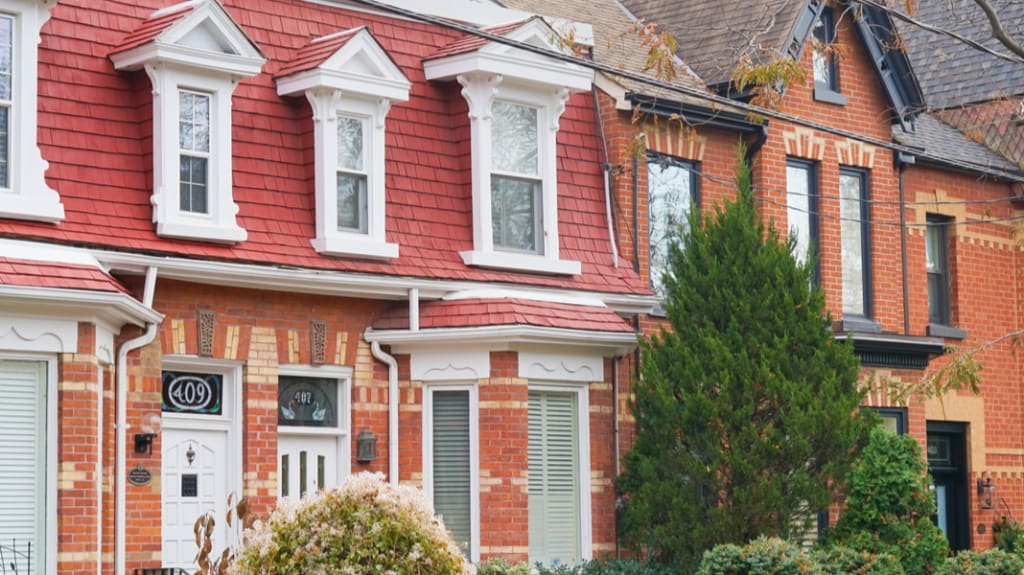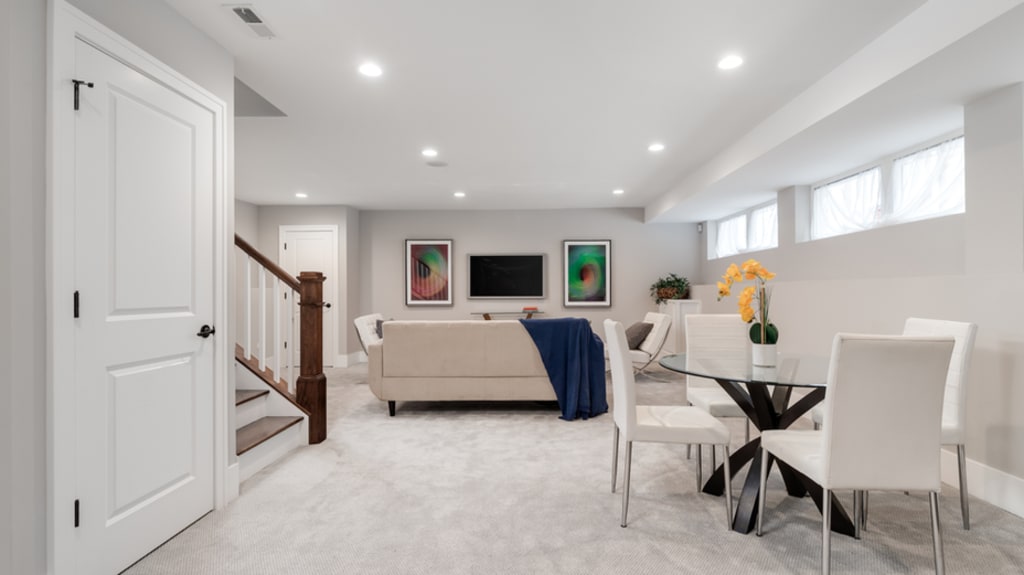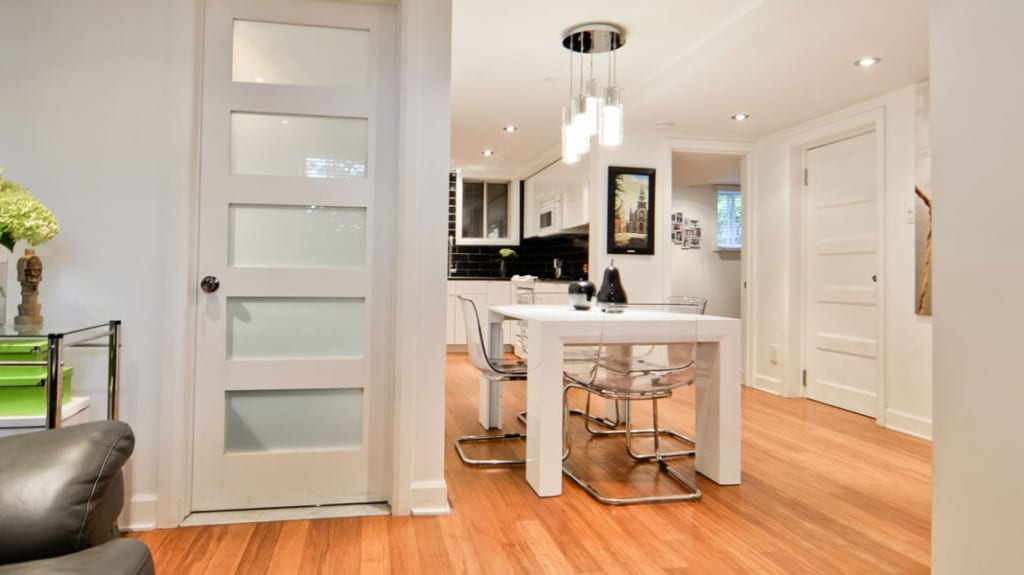How to know if you have a problem with humidity in your basement? Touch, look and smell. Feeling or smelling moisture when going down to the basement or seeing some water-affected areas are often signs that the humidity is too high. Such a situation is not to be taken lightly since it can cause significant damage to your home and your health. Fortunately, there are solutions to fix it!
Before undertaking anything, it is important to know the risks associated with moisture in a basement, the causes, as well as how to get rid of it.
What’s the average humidity level in a basement?

The ideal humidity level in a basement fluctuates between 40% and 70%. Devices like a humidity reader or hygrometer can help you properly manage that. You can also rely on a dehumidifier to remove excess water vapour to maintain an optimal environment.
Going one step further, it’s highly recommended to have a dehumidifier in the basement to balance things out when the relative exterior humidity tops 70% during the summer. If you have an air exchanger, avoid the intake of outside air during the warm months to keep humidity levels down. Air interiors out in the winter by opening a few windows for two or three minutes, depending on the exterior temperature of course!
The consequences of a humid basement

As warm air always rises, the air in your basement travels from floor to floor, up to upper level rooms. This is called the chimney effect. Thus, wet basement air that is touched by contaminants, such as mould, will also be found on the upper floors of your home. The list of negative effects directly related to high basement humidity is quite long. Here is what to look out for:
Curvy hardwood floors
Rubbing doors (due to swelling)
Carpets or other damp fabrics giving off odours
More intense presence of dust mites (most important indoor allergen)
Condensation, rot and mould which, thanks to the heat, rise to your attic and settle there
Frost, condensation and mould inside windows when the temperature drops below zero
Increased heating and cooling bills (moist air = more difficult to heat and cool)
Aggravation of allergies and asthma
Presence of insects and humidity bugs (silverfish, earwigs, house centipedes, psocids…).
Etc.
To protect your own health and that of your loved ones, don’t wait for such a situation and attack the problem directly at the source. Remember to decontaminate your basement if any of these problems arise. If the infected area isn’t that big (say less than a square metre per area) and the mould isn’t black and covering porous surfaces, you might be able to remove it yourself. Here’s an article to help you weigh your options: Should you take on a mould remediation yourself?
Causes of moisture in a basement
There are four main reasons why a basement is humid or wet:
Infiltration of groundwater
Capillary action (when your concrete blocks absorb water and become like sponges)
Problem related to water vapour that runs through your walls
Air infiltration in your basement, which lets in as much water as air
How to prevent water infiltration in a basement

If you want to prevent water infiltration from penetrating your foundation and making its way inside your property, there are two preventative measures to take:
Apply a waterproof coating or membrane to the outside basement walls. Note Basement waterproofing is not a DIY job. It is a difficult and complex project that should be supported by professionals in this field. These specialized contractors have the knowledge and skills to waterproof a basement with specialized equipment for this type of task. Our Renovation Advisors can provide Verified Contractor recommendations so you can find the right professional to perform the work in accordance with industry standards.
Install a French drain around the foundation, which will discharge excess water away from your home. You can look at our article about French drain costs to get a better idea of the price. Before the 1970s, it wasn’t mandatory to have a French drain around one’s house. If the slope from your house is negative and your house was built before the 1970s, it is at risk of water accumulation. It’s possible that your home is experiencing water infiltration through its foundations. It would, therefore, be important to correct the situation quickly.
That said, even if you have a French drain, it’s worth noting that its average life is estimated at around 20-25 years. After this time, it may be that it’s clogged with dirt and mud or pierced by branches and that it no longer rejects water as it did in its early years. It’s also possible to level the ground around your house by adding soil or clay to raise the slope of your home and reduce the risk of infiltration.
To learn more, read our article Water Infiltration: Preventing your home from damages.
Find a contractorHow to reduce humidity in a basement
Despite all your efforts made, such as installing a French drain, waterproofing your foundation or repairing your foundation cracks, it’s possible that humidity continues to persist in your basement. In these cases, it could also be poor insulation or a crack letting in outside air that you don’t see. It would be beneficial to add one or more dehumidifiers–there are several sizes and capacities to choose from depending on the size of the space to be covered.
Your dehumidifier must have an integrated water drainage system. If it doesn’t, as soon as the tank is full, you’ll have to empty it. A dehumidifier tank can fill up after 12 hours before turning off. In a case where the humidity is high, with a low-end dehumidifier you have to empty it several times a day. With an integrated system, the work is done alone throughout the year, without the risk of machine shutdown! In addition, these systems don’t run on a timer but rather according to the humidity level in the air. Thus, it only starts when needed.
In the event of persistent humidity, you may need to install a professional device (industrial scale like those used in warehouses or on construction sites) in order to strike the right balance.
Are your foundation walls cracked?

It’s not always easy to see potential cracks all the way up inside your walls. If your basement is not finished with gypsum, you have the benefit of seeing from the inside if cracks are present on your foundations. Foundation cracks are a source of infiltration (water and air) and thus directly related to the increase of the humidity level in your basement. The repair of foundation cracks is therefore essential even before thinking about finishing your basement.
If you’re not a homeowner but rent an apartment or own a condo, you can read more about foundation cracks in our article Foundation cracks in your building foundation.
How to treat damp walls in a basement

Whether your foundation is in poured concrete or concrete blocks, with the weather and humidity in a basement that is not completely renovated, it is possible that your walls are stained. What can you do to correct the situation?
First, do not finish a basement until the source of the moisture or infiltration problem has been corrected. This will not improve your basement and will instead create an ideal environment for mould growth. Once the problem is resolved, you can then consider a complete finishing and insulation solution, tailored to your needs.

Thinking of renovating?
If you don’t want to finish your basement, there are several types of insulation boards that can be affixed directly to your foundation walls. They will not have the same finish, but they will help make your basement more insulated and more attractive, without having to pay a large amount. SOPRA panels are one example.

Can a basement humidity problem have an impact on the sale of your home?
You guessed it–a potential buyer usually expects to buy a healthy home with a dry basement. They don’t want to have to deal with problems arising from a humid basement.
A basement that isn’t completed or renovated, and also has a moisture problem, even benign, will have an impact on the resale value of your home. In general, an impairment loss of 10% of the total value of the house is calculated. For example, for a house worth $400,000, you will lose about $40,000. This is the minimum loss threshold because it doesn’t include damage or the cost of repairs and renovations. If the buyer has to change a French drain, repair cracks, redo finishes and the floor, this will add to your losses as a seller.
Before investing in a basement renovation
If you’re thinking about finishing your basement, know that there are plenty of benefits in doing so. In addition to being a great way to earn additional living space, you’ll get a very interesting return on investment (50 to 75%). However, you can’t think of doing so until you have solved the causes of the humidity in your basement. The way you choose to layout your basement will not solve moisture problems.
You’ll be looking at spending on average between $40,000 and $80,000 to insulate and finish a basement.
Learn more about the costs associated with this type of work by reading our article What does a basement renovation cost in 2024?. It includes information about insulation, flooring, walls, dividers and much more.
What types of flooring work best in a humid basement?

To avoid many future hassles, start with picking the most appropriate materials for your basement floor. Some types of flooring are better than others for this part of the home. Take a look at the following options:
Floating floor (also called laminate or laminated flooring) is by far the most popular. Easy to install, easy on the wallet, durable, it comes in a wide variety of textures and styles.
Engineered wood is another great choice (compared to hardwood) because it resists humidity… and still looks like real wood!
Ceramic or porcelain tile is an option that’s second to none in rooms with high humidity. It’s often installed as heating flooring because it has a very high thermal conductivity.
Vinyl tile and planks have become increasingly popular. They can look like a wide variety of materials, resist humidity and last a long time.
Epoxy resin has a modern look and doesn’t require a lot of maintenance.
Cork is a renewable material that’s known for its high impact absorption and moisture resistance.
Concrete is as low maintenance as they come. Include a seal and polish, and you can achieve a stain-resistant and waterproof floor.
Rubber is an interesting option in activity spaces. It stands out for its durability, comfort and high shock absorption.
Latex or acrylic paint to be applied to a wood or concrete floor could be another fast, easy and economical option to add some character.
Carpet adds warmth and a decorative touch to this space. It must be installed on a well-sealed surface to prevent any humidity or mould from creeping underneath.
Would you like to be inspired by some real basement renovation projects? Check out basement ideas in the Our Projects section. Find details on each project, including the price tag. It’s a great way to get some good ideas while considering your budget and the type of project you want to do.

Invest in a dry basement or endure a wet basement?
Fixing the problems of a wet basement is not the most exciting project, it’s true. But if you push back a problem for too long, your health may suffer… and your wallet too! The bigger the problem, the more it will cost to correct. It’s always more economical to solve a problem before it gets out of control. In addition, with a basement in good condition, you’ll enjoy the space for many years.
Need more information?
If you’re ready to get started with your basement renovation, then you’ll need some help looking for basement contractors.
Call us or fill out our form to speak to one of our Renovation Advisors. They can help you by rallying up to three Verified Contractors to compete on your project. You’ll get fairly priced quotes, all at no cost and no obligation to you!
Happy renovations start here!
Get my quotes




